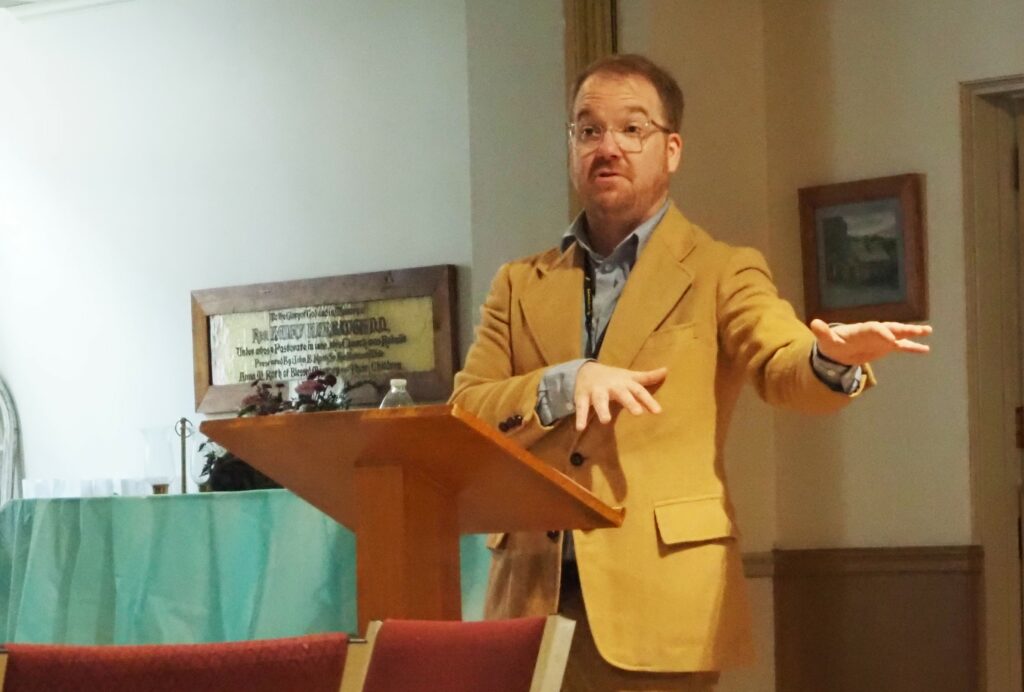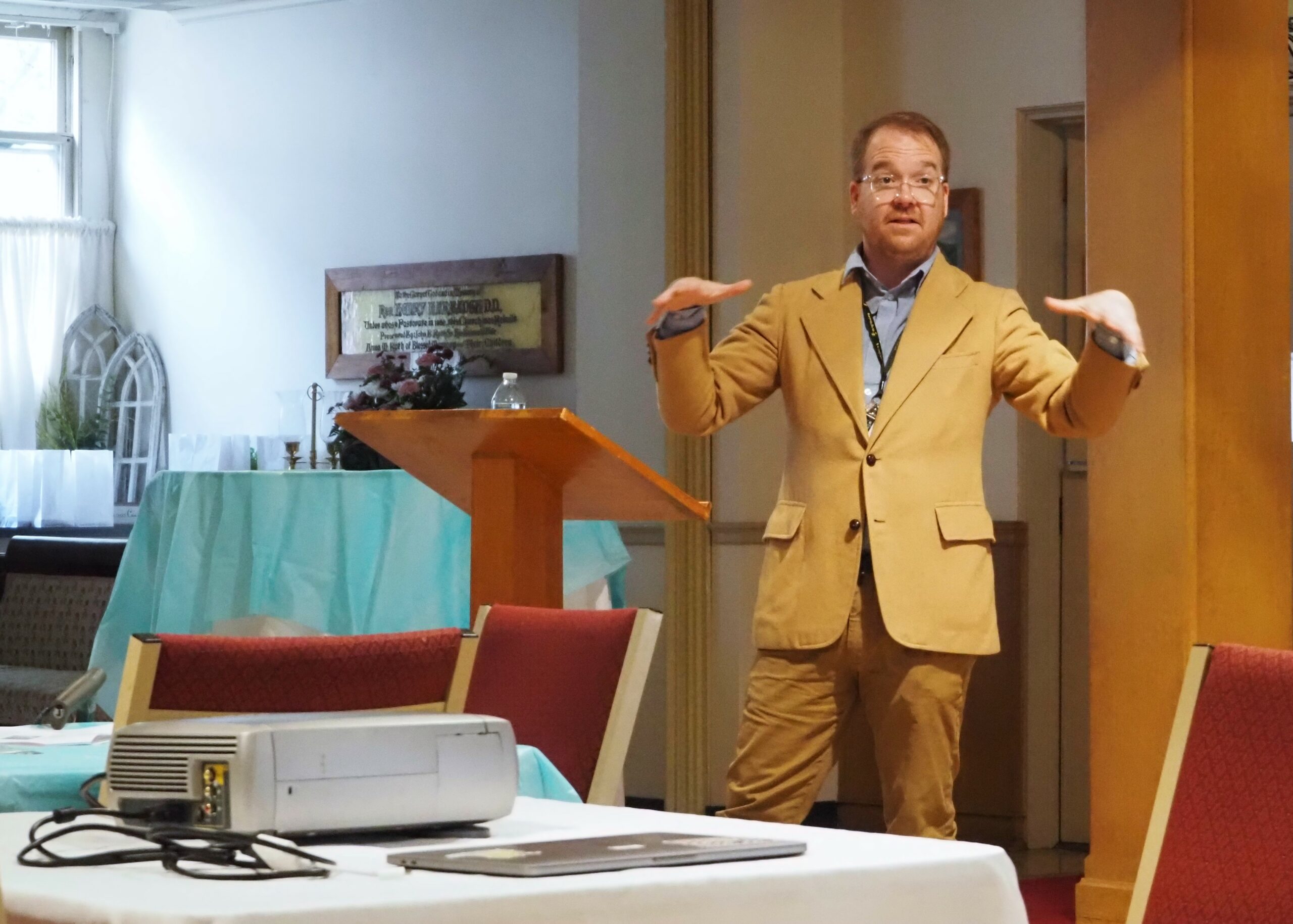(This article is part of One United Lancaster’s reporting on the 2023 Lancaster County Climate Summit.)
Church World Service’s Matt Johnson tied local and global refugee trends together into a broad presentation addressing environmental, political and humanitarian concerns at Saturday’s Lancaster County Climate Summit.
He discussed the barriers faced by immigrants and refugees in Lancaster and explained how ecological crises create the kinds of political events — like the civil war in Syria — which result in forced migration. He discussed possible policy ideas for addressing these problems, from Lancaster city and its neighboring communities to the state of Pennsylvania and all the way up to the United Nations.
Johnson is Church World Service’s strategic community partnerships officer. The resettlement work, ongoing today, that led the BBC to call Lancaster the refugee capital of America, is the latest chapter of a proud tradition, he said.
“For the 300 years that people have been coming to Lancaster, we’ve been welcoming religious dissidents, persecuted minorities, escaped slave peoples, people displaced by war, disaster and other issues. This is in Lancaster’s DNA,” he said.
Throughout history, Johnson said, natural and manmade climate change has fomented political upheaval. He cited the French Revolution (partially the result of a volcanic eruption in Iceland), the Dust Bowl and Hurricane Katrina.

Changing weather patterns lead to crop failure and food shortages, which exacerbate existing tensions until they boil over. There is a “double injustice” to climate change, he said: It is those who are poorest and least responsible for carbon emissions who are bearing the brunt of worldwide ecological devastation.
Of the 100 million displaced persons in 2021, the UNHCR only recognizes 27 million of them as refugees. Official refugee status can confer financial aid and a path to citizenship.
Johnson bemoaned the fact that the Afghanis that Lancaster County welcomed after the U.S. withdrawal were admitted to the U.S. not as refugees, but as humanitarian parolees. That means they have no established pathway to citizenship, not even those who risked their lives assisting the U.S. military in Afghanistan.
During the question and answer portion of his presentation, Johnson addressed the affordable housing issues that affect many in Lancaster County but are particularly acute for refugees. He cautioned that affordable housing is not just an urban problem, and that the development of farmlands poses its own environmental concerns.
Pennsylvania, he said, lags behind her neighbors in helping foreign born professionals obtain the licenses they need to practice in the state.
The UN should create a special designation for climate refugees, Johnson contended. As seawaters continue to rise, and hurricanes and other storms increase in severity, the number of people displaced by climate change will only grow.
The refugees he works with come from many walks of life, and from communities that were stable until the crises that led to their diaspora.
“Anybody can become a refugee at any time,” he said.






